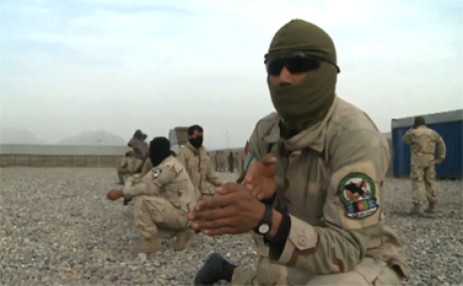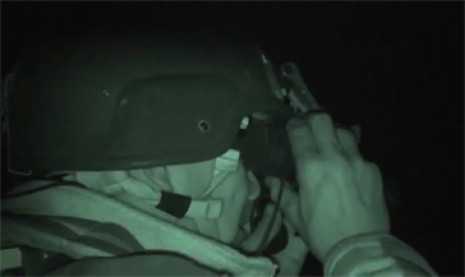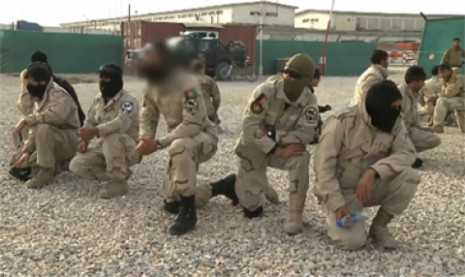Afghan unit carries out night operation
Szöveg: hungariandefence.com | 2012. április 11. 13:49Around midnight, Afghan soldiers pour out of two Chinook helicopters. They walk single file in the pitch-dark of the barren mountain tops. The silence of the valley is broken only occasionally by barking dogs.

They spend two long hours marching, encountering small farming villages along the way, lit only by the moonlight.
Eventually, the battle group reach a small village. The Taliban commander and other senior leaders are thought to be in the area and the CRU believe they have small arms and also perhaps more sophisticated weaponry in their possession.
Rooting out the insurgents
Then, closing in on a house where they suspect the insurgents are hiding, the soldiers line up, waiting for the ‘Go!’; their nerves are on edge.

Meanwhile, outside the compound, the team discover a number of components to make Improvised Explosive Devices (IEDs) as well as Afghan and American army uniforms, insurgency-related documents and radio equipment.
However, the men can’t be linked to the find and the prosecutor decides to release them. It seems that the Taliban members the CRU are looking for have already fled from the house.
During the questioning, gunfire can be heard around the compound as Apache helicopters engage with the Taliban. Later, five leaders are confirmed killed and their commander wounded.
Afghans taking the lead

The CRU deploys day and night and all their members are Afghan. The 300-strong team, which gets limited advice from the New Zealand Special Forces, has been called to deal with a number of high-profile attacks. ‘We did a great job so far. British Embassy, Intercontinental Hotel, Ministry of Justice. Those were very important jobs for us,’ says the Unit’s commander.
Night operations are a major cause of friction between Afghan President Hamid Karzai and the US Government. Nevertheless, both US and Afghan officials insist night missions are the most effective way of disrupting insurgent activity. Now Afghans are increasingly taking the lead in these operations.
www.nato.int